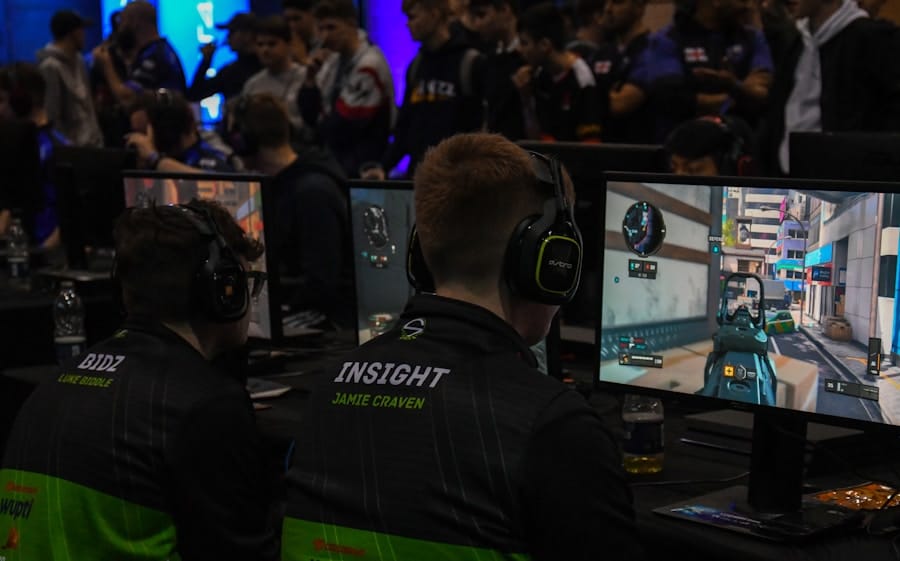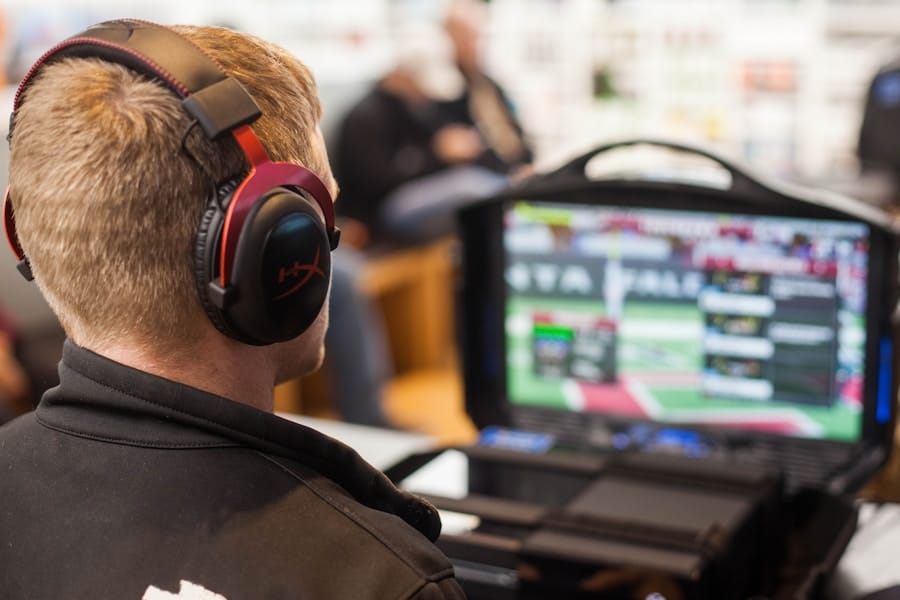The landscape of e-sports has evolved dramatically over the past decade, transitioning from a niche hobby to a global phenomenon with millions of players and spectators. As the competitive nature of e-sports intensifies, the demand for effective training methodologies has surged. Enter AI-powered coaching assistants, sophisticated tools designed to enhance player performance and streamline training processes.
These digital coaches leverage advanced algorithms and machine learning techniques to analyze gameplay, provide feedback, and develop tailored training regimens. The integration of artificial intelligence into e-sports training represents a paradigm shift, offering unprecedented insights and support to players and coaches alike.
By harnessing vast amounts of data generated during gameplay, these systems can identify patterns, strengths, and weaknesses that may not be immediately apparent to human coaches. This capability allows for a more nuanced understanding of player performance, enabling targeted interventions that can lead to significant improvements. As e-sports continues to grow in complexity and competitiveness, the role of AI in coaching is poised to become increasingly vital, shaping the future of how players train and compete.
Key Takeaways
- AI-powered coaching assistants in e-sports training are revolutionizing the way players and teams analyze and improve their performance.
- These assistants play a crucial role in analyzing player performance by collecting and processing data from in-game statistics and player behavior.
- AI-powered coaching assistants provide personalized training plans by identifying individual player strengths and weaknesses and tailoring practice regimens accordingly.
- They have a significant impact on improving team communication and strategy by providing real-time feedback and strategic insights during gameplay.
- The integration of AI-powered coaching assistants in e-sports organizations is becoming increasingly prevalent, with teams leveraging this technology to gain a competitive edge.
The Role of AI-Powered Coaching Assistants in Analyzing Player Performance
One of the primary functions of AI-powered coaching assistants is their ability to analyze player performance with remarkable precision. These systems utilize data analytics to dissect gameplay footage, tracking various metrics such as reaction times, decision-making processes, and overall game mechanics. For instance, in games like League of Legends or Dota 2, AI can evaluate a player’s positioning, map awareness, and ability usage during matches.
By aggregating this data, AI can provide insights that help players understand their performance trends over time. Moreover, AI-powered coaching assistants can benchmark individual performance against that of top-tier players or teams. This comparative analysis allows players to identify specific areas for improvement by highlighting discrepancies in gameplay styles or decision-making strategies.
For example, if a player consistently struggles with objective control in a MOBA game, the AI can pinpoint moments where better positioning or timing could have led to more favorable outcomes. This level of detailed analysis empowers players to make informed adjustments to their gameplay, ultimately enhancing their competitive edge.
How AI-Powered Coaching Assistants Provide Personalized Training Plans

The personalization of training regimens is another significant advantage offered by AI-powered coaching assistants. Traditional coaching methods often rely on generalized training programs that may not address the unique needs of each player. In contrast, AI systems can create customized training plans based on individual performance data and learning styles.
By analyzing a player’s strengths and weaknesses, these assistants can recommend specific drills, practice routines, and even mental exercises tailored to enhance particular skills. For instance, if an AI assistant identifies that a player struggles with aiming accuracy in a first-person shooter like Counter-Strike: Global Offensive, it can suggest targeted aim training exercises that focus on precision and reflexes. Additionally, the AI can monitor progress over time, adjusting the training plan as the player improves or encounters new challenges.
This dynamic approach ensures that players remain engaged and motivated while continuously developing their skills in a structured manner.
The Impact of AI-Powered Coaching Assistants on Improving Team Communication and Strategy
Effective communication and strategic planning are crucial components of success in team-based e-sports titles. AI-powered coaching assistants can facilitate better communication among team members by providing real-time feedback and insights during practice sessions and matches. For example, these systems can analyze team dynamics and suggest optimal strategies based on the strengths and weaknesses of both the team and their opponents.
By offering data-driven recommendations, AI can help teams make informed decisions about tactics and positioning. Furthermore, AI assistants can serve as neutral mediators during discussions about strategy or performance issues. By presenting objective data rather than subjective opinions, these systems can help reduce conflicts and foster a more collaborative environment.
For instance, if a team is debating the effectiveness of a particular strategy, the AI can provide statistical evidence supporting or refuting its success based on past matches. This reliance on data helps teams focus on improvement rather than personal grievances, ultimately enhancing overall performance.
The Integration of AI-Powered Coaching Assistants in E-Sports Organizations
As e-sports organizations recognize the potential benefits of AI-powered coaching assistants, many are beginning to integrate these technologies into their training frameworks. This integration often involves collaboration between data scientists, game analysts, and traditional coaches to create a comprehensive support system for players. Organizations are investing in proprietary AI tools or partnering with tech companies specializing in sports analytics to develop customized solutions that cater to their specific needs.
The implementation of AI-powered coaching assistants also necessitates a cultural shift within e-sports organizations. Coaches and players must embrace data-driven methodologies while maintaining the human element of coaching. This balance is essential for fostering an environment where players feel supported both by technology and by their coaches.
As organizations continue to adapt to this new paradigm, they are likely to see improvements in player development, team cohesion, and overall competitive performance.
The Future of AI-Powered Coaching Assistants in E-Sports Training

Looking ahead, the future of AI-powered coaching assistants in e-sports training appears promising yet complex. As technology continues to advance, we can expect these systems to become even more sophisticated in their analysis and recommendations. Future iterations may incorporate advanced neural networks capable of simulating various game scenarios or predicting opponent behavior based on historical data.
Such capabilities could revolutionize how players prepare for matches by allowing them to practice against virtual opponents that mimic real-world strategies. Moreover, as machine learning algorithms improve, AI-powered coaching assistants may become more adept at understanding the psychological aspects of gaming. By analyzing not only gameplay data but also player sentiment through voice analysis or biometric feedback, these systems could offer insights into mental resilience and focus during high-pressure situations.
This holistic approach could lead to more comprehensive training programs that address both technical skills and mental fortitude.
Ethical Considerations and Potential Challenges of AI-Powered Coaching Assistants in E-Sports
Despite the numerous advantages offered by AI-powered coaching assistants, several ethical considerations and challenges must be addressed as these technologies become more prevalent in e-sports training. One significant concern revolves around data privacy and security. Players’ performance data is sensitive information that must be handled responsibly to prevent misuse or breaches.
Organizations must establish clear protocols for data collection, storage, and sharing to protect players’ rights while still leveraging valuable insights. Additionally, there is the potential for over-reliance on technology at the expense of human intuition and creativity. While AI can provide valuable data-driven insights, it cannot replicate the nuanced understanding that experienced coaches bring to the table.
Striking a balance between leveraging AI capabilities and maintaining human oversight will be crucial for ensuring that players receive well-rounded support in their development.
The Potential Benefits and Limitations of AI-Powered Coaching Assistants in E-Sports Training
AI-powered coaching assistants represent a transformative force within the realm of e-sports training, offering unprecedented opportunities for performance analysis, personalized training plans, improved communication strategies, and organizational integration.
However, it is essential to navigate the ethical considerations surrounding data privacy and the potential challenges posed by over-reliance on technology.
The future landscape of e-sports will likely see a harmonious blend of human expertise and artificial intelligence working together to elevate player performance. By embracing this synergy while remaining vigilant about ethical implications, the e-sports community can harness the full potential of AI-powered coaching assistants to foster growth and innovation in this dynamic field.
A related article to “How AI-Powered Coaching Assistants Are Enhancing E-Sports Training” is “Discover the Best Paying Jobs in Tech 2023” which discusses the top-paying jobs in the tech industry for the upcoming year. This article provides valuable insights for individuals looking to pursue a career in technology and highlights the lucrative opportunities available in the field. To learn more, check out the article here.
FAQs
What are AI-powered coaching assistants in e-sports training?
AI-powered coaching assistants in e-sports training are software programs that use artificial intelligence to analyze player performance, provide personalized feedback, and offer training recommendations to improve skills and strategies in e-sports games.
How do AI-powered coaching assistants enhance e-sports training?
AI-powered coaching assistants enhance e-sports training by providing real-time analysis of player performance, identifying areas for improvement, and offering personalized training plans. They can also help players develop new strategies, track progress, and provide insights based on data analysis.
What are the benefits of using AI-powered coaching assistants in e-sports training?
Some benefits of using AI-powered coaching assistants in e-sports training include personalized feedback, improved performance analysis, tailored training plans, and the ability to track progress over time. These assistants can also help players identify weaknesses and develop strategies to improve their gameplay.
How do AI-powered coaching assistants use artificial intelligence in e-sports training?
AI-powered coaching assistants use artificial intelligence to analyze large amounts of data, identify patterns in player performance, and provide personalized recommendations for training and improvement. They can also adapt to individual player styles and preferences, offering a more tailored training experience.
Are AI-powered coaching assistants widely used in the e-sports industry?
AI-powered coaching assistants are becoming increasingly popular in the e-sports industry as teams and players seek to gain a competitive edge. While they may not be universally adopted, many professional and amateur e-sports players are using AI-powered coaching assistants to enhance their training and performance.

